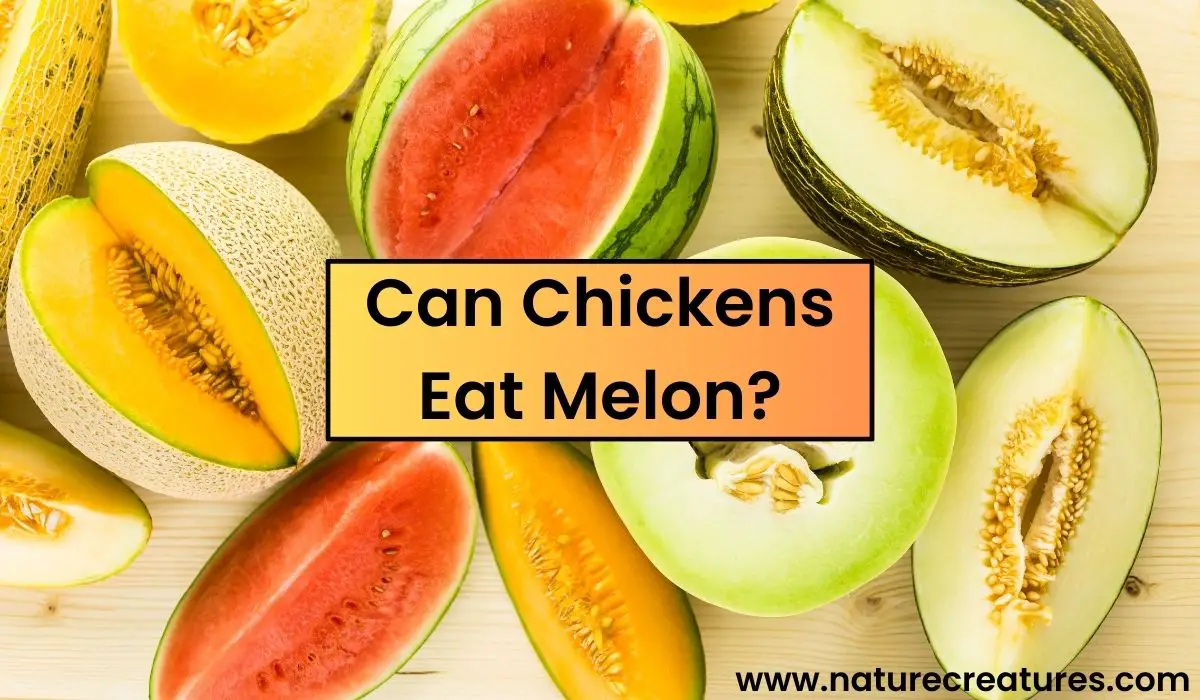The Cucurbitaceae family includes the wonderfully sweet and nutritious fruit known as the melon. Around the world, melon is a fruit frequently utilized in the summer. Melons come in various varieties, and people eat them for multiple reasons. In my modest yet wonderful garden, I also raise melons. I generally use this fruit in the summer when it is ripe.
Everyone loves eating melons, but can chickens consume them the same way people can?
Just like humans, chickens enjoy eating melons. They can eat all parts of this fruit without any issue. Melons contain a variety of essential vitamins and nutrients. You should, however, only feed your chickens in moderation.
Can chickens eat any variety of melons?
Chickens can consume melons of all varieties. It is a secure and delectable treat for the chickens in your backyard. Even though chickens lack teeth, they can readily eat this soft, sweet fruit since it is easily digestible. The world is home to different melon varieties, but I’ll talk to you about some of the more popular ones available for consumption.
➢ The honeydew melon
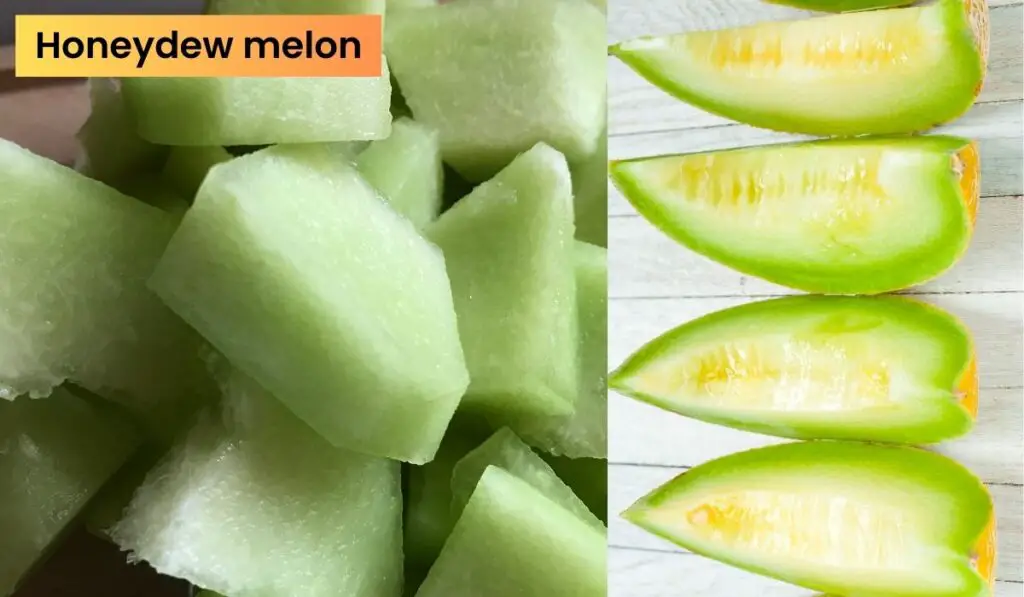
The most popular variety of melons is honeydew. Your chicken can enjoy honeydew as a treat, as it is widely used worldwide. The flesh of it is a light green tint. If your chicken can eat honeydew melon, you are more likely to benefit from its nutrients. Chickens are supposed to eat every component. In honeydew melon, natural sugar is present in a reasonable amount.
➢ Watermelon
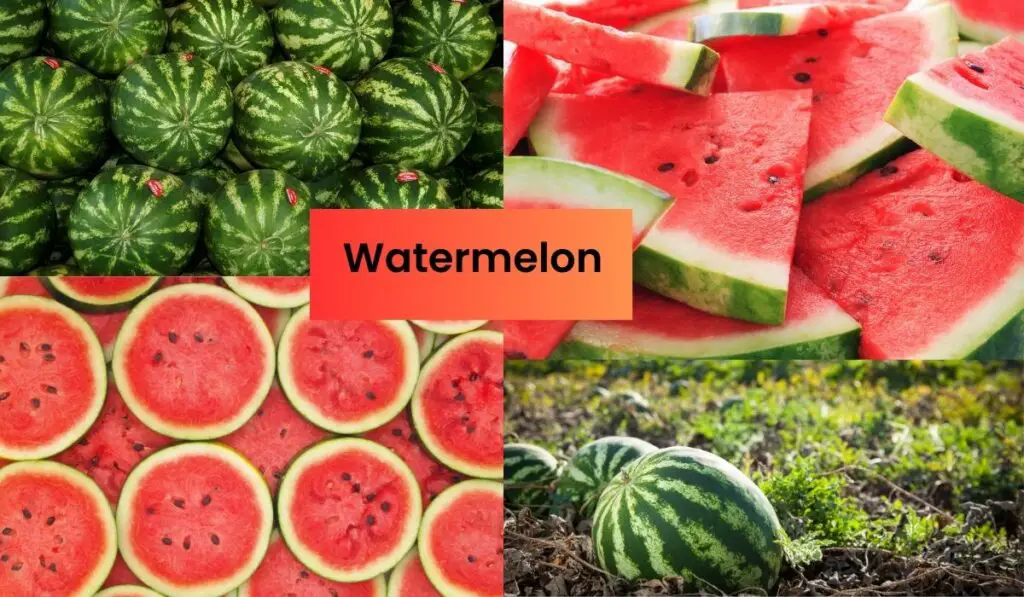
Watermelon is a lovely and tasty fruit for your poultry friends. Your chicken will enjoy it. These fruits have red flesh and a green rind that are safe for your chickens to eat. However, the watermelon’s black seeds are also safe and beneficial for backyard hens.
➢ Cantaloupe
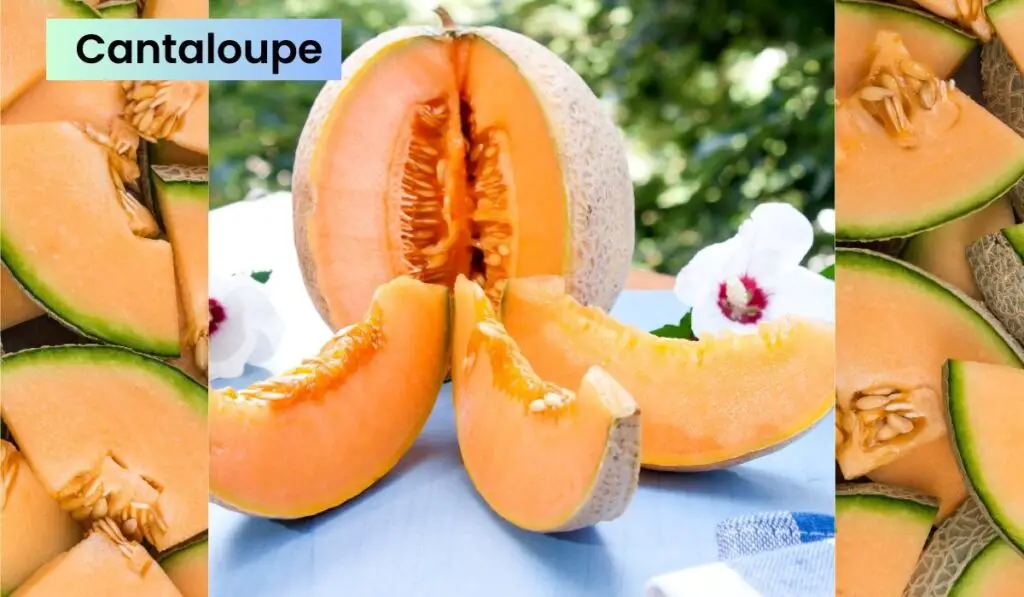
This particular variety of melons is well-known throughout the entire world. For chicken consumption, it has orange-colored flesh that is quite tasty. This cantaloupe is a favorite among many owners of chickens to give their finicky pets.
What are the benefits of melon?
As you know, every natural fruit and vegetable has numerous health benefits for humans and chickens. In light of this, let’s examine the benefits of melon.
➢ Melon aids in weight loss
If your chicken is susceptible to obesity, melon is a nutritious snack that can help it lose weight. Obesity, as you may be aware, contributes to the development of several diseases. As a result, melons are fed to hens because they contain nearly 90% water, which is ideal for weight loss. It also has low-calorie and low-fat snacks for your flock in the backyard.
➢ Melons promote anti-aging
Melons contain a lot of collagen. For the health of hens, this protein offers many advantages. This component is crucial for regenerating the body and skin tissues to make your chicken youthful.
➢ The hydrating benefits of melon
The best source of water content is melon, which is excellent for keeping chickens hydrated during heat stress, especially during the hot summer months. Give your flock this water-rich melon if you see that your chicken is becoming dehydrated.
➢ Melon promotes the recovery of wounds
The backyard hens receive countless advantages from the melon’s high collagen content. Repairing damaged wounds, such as shielding skin from the sun’s harmful rays, is essential.
➢ Melons aid in enhancing bone strength
A sufficient amount of calcium is also essential for the growth and development of bones. It’s crucial to maintain healthy, strong bones and teeth.
➢ Improve heart health
If your chicken can consume melon, there are also beneficial impacts on heart health. A substance called lycopene guards against heart problems. Additionally, citrulline, also present in melon, is essential for efficiently operating the heart’s arteries.
➢ Cancer Prevention
A significant factor in preventing cancer is the high carotenoid content of melon. Furthermore, melon contains a large number of antioxidants that help to prevent cancer.
➢ Enhancing eye health
Chickens’ eyes benefit significantly from the beta-carotene and other carotenoids found in melon, which are great for human health and enhance the health of chickens’ eyes.
➢ To make the digestive system better
Melons have a high water and fiber content, which helps the digestive system work correctly. Eating the melon will strengthen the immune system and decrease stomach aches if your chicken can eat it. The occasional usage of this fruit is an excellent choice, nevertheless.
➢ It supports the effort to combat free radicals
Melons contain various powerful antioxidants, including beta-carotene, lutein, and zeaxanthin, all of which fight free radicals. These free radicals are harmful to your flock’s health. As a result, all of these antioxidants offer protection against free radicals.
Can chickens eat the melon rind?
Chicken can eat the rind of melon without harm, but you should not have given it in huge quantities at once as it made your backyard chicken sick. For the chicken to consume, you should also chop it into small pieces.
Is melon flesh edible by chickens?
Melons are a typical food; your chicken will like eating them. Chickens can indeed eat melon flesh. The flesh is delightful to eat and is soft.
Are melon seeds suitable for chicken consumption?
Their seeds are fine for chickens to consume, but avoid giving them hard seeds. You give your poultry friends melon seeds that have been soaked in water a few times.
In what way may I feed melons to my chickens?
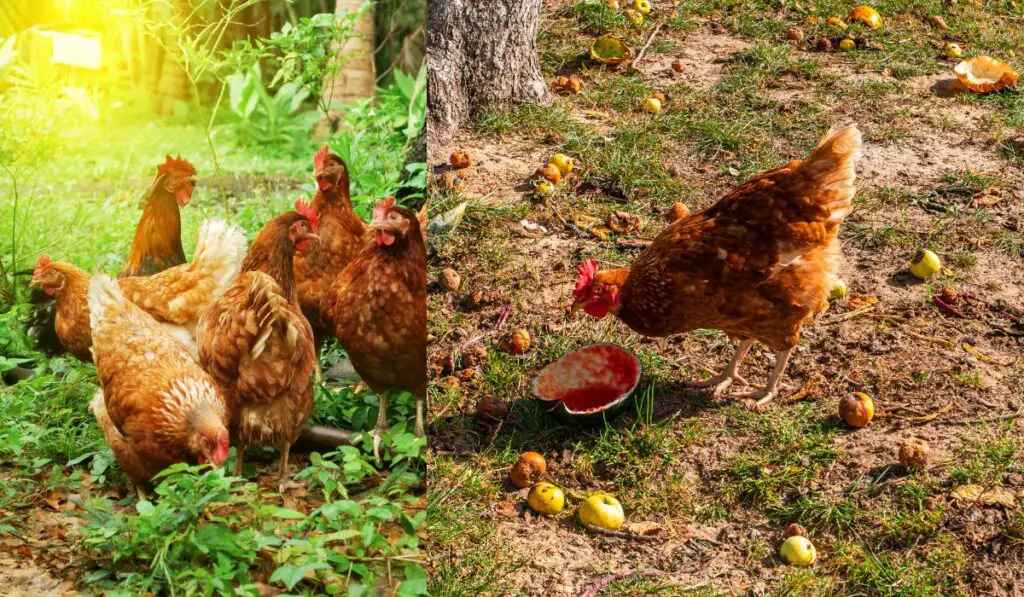
The melon can be consumed in several ways by your bird. Feeding melon to chickens is not complex in any way.
- You can serve the melon with your fowl, sliced into little pieces.
- Mix the melon slices with other fruits and vegetables before feeding your chickens.
- You might also give the birds pieces from a frozen refrigerator.
How frequently can I feed melons to my chickens?
You should only serve the melon fruit to your chicken as an occasional treat. However, you can share the melon with your flock twice a month. After 15 days is enough time to share this treat.
How many quantities of melon can I share with my backyard chickens?
You can share only one whole melon with the six chickens. However, a half melon is okay for three hens. Never give an excessive quantity of melon to your flock. Overeating melon causes your chicken’s body to develop several issues.
What health risk is involved if your chickens can eat a lot of melon?
Many health problems can arise in your chicken’s body if it consumes too much melon.
- Chickens can face the problem of diarrhea.
- Your chicken metabolism is also disturbed due to overeating melon.
- The excessive consumption of melon also harms blood sugar levels. The melon contains natural sugar, which leads to increased blood sugar.
Final words
Chickens eat melon safely. This soft flesh is very nutritious for your backyard hens. But avid to give high content of melon to your fowl buddies because too much quantity harms your flock’s health.
RELATED QUESTIONS: –
Can baby chicks eat melon?
Of course, however, this is only permitted once the chicks reach the age of three weeks. Young chicks can also consume the melon. They should consume special baby chick feed during this period because they are in the early phases of development. To give your newborn chicks this fruit, wait until they are three weeks old.
What to do if your chicken can intake over the amount of melon?
If the chicken can consume the melon in large doses, you should need that higher vet for your pet as quickly as soon and follow their guidelines.
Can chickens eat moldy or rotten melon?
Never give rotten food to your fowl buddies, particularly melon. The moldy fruits and vegetables comprise dangerous toxins, which are inadequate for the health of your fowl companions.
Can I serve the unripe melon to my chickens?
No. Never feed unripe melon to your flock because the hazardous substance called cucurbitacin E is present in the unripe melon. For this reason, we suggest that you avoid giving your backyard chickens unripe melon.
Can chickens like to eat melons?
Melon is a lovely treat for your chickens to eat. However, you can first introduce the melon to your chicken. If they want to eat this fruit, they serve it after a few days. But, if they are not interested in consuming the melon, never feed it to your chickens. However, many hens are very fond of drinking delicious melon fruit.

